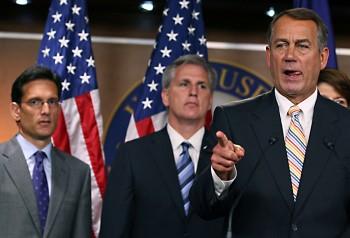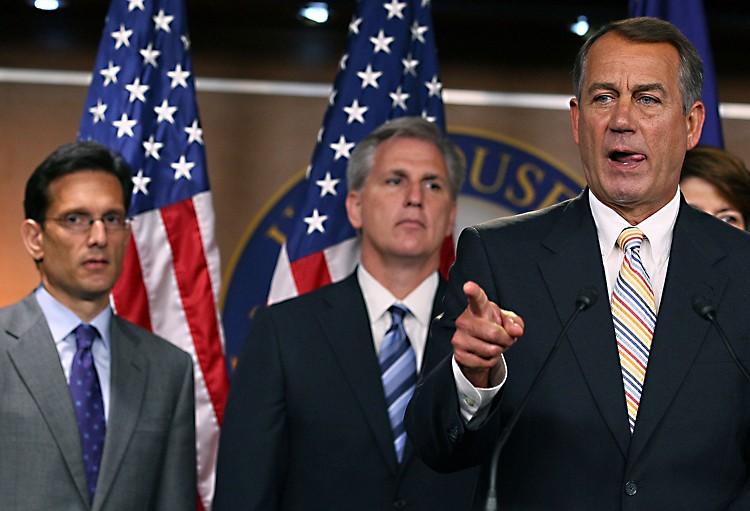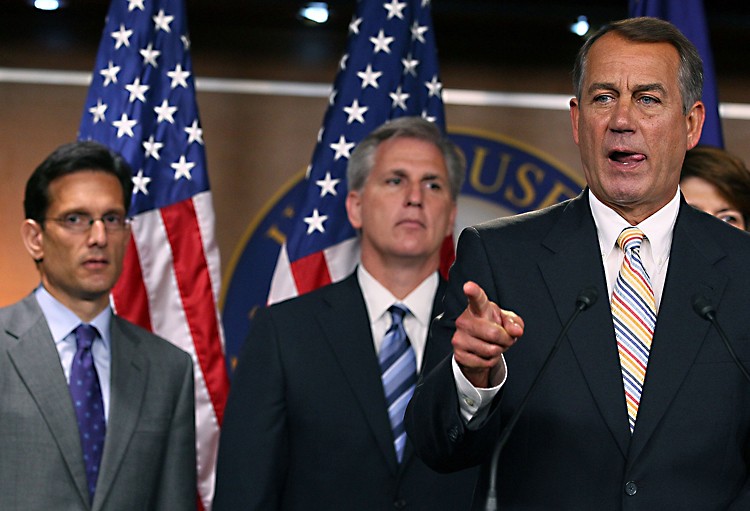Polls: Fed Up With Marathon Debt Talks
Recent opinion polling shows that Americans are frustrated, and want elected representatives to reach a compromise on deficit negotiations.

WASHINGTON, DC - JULY 19: House Speaker John Boehner (R-OH) (R) speaks during a news conference at the U.S. Capitol, on July 19, 2011 in Washington, DC. House Republicans introduced a plan to raise the debt ceiling $2.4 trillion, but only after significant spending cuts. Mark Wilson/Getty Images
|Updated:
Reporting on the business of food, food tech, and Silicon Alley, I studied the Humanities as an undergraduate, and obtained a Master of Arts in business journalism from Columbia University. I love covering the people, and the passion, that animates innovation in America. Email me at andrea dot hayley at epochtimes.com
Author’s Selected Articles






